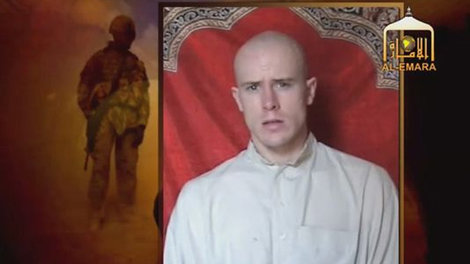![beau bergdahl 061014[ID=11807964] ID=11807964](http://www.gannett-cdn.com/-mm-/04f27885f73d2be57203b428bc6b6e6a03c123da/c=0-0-480-480/http/wcnc-download.edgesuite.net/archive/images/beau bergdahl 061014.jpg) The Army says there is no truth to media reports claiming a decision has been made to charge Sgt. Bowe Bergdahl with desertion.
The Army says there is no truth to media reports claiming a decision has been made to charge Sgt. Bowe Bergdahl with desertion.
The Army continues to review the case against Bergdahl, said Paul Boyce, a spokesman for Forces Command, on Tuesday.
In a report Monday citing two anonymous military sources, retired Lt. Col. Tony Schaffer told Fox News' "The O'Reilly Factor" that the Army plans to charge Bergdahl with desertion. Schaffer also told the outlet his sources confirmed to him that Bergdahl's lawyer has been given a charge sheet.
But Boyce said there is no charge sheet and that the Fox News story "seems to be speculative in nature." Bergdahl's attorney Eugene Fidell declined to comment. NBC News, citing an anonymous senior defense official, is also reporting a desertion charge is coming, possibly within the week.
Gen. Mark Milley, commanding general of Forces Command, "is reviewing now the Army's facts and findings to determine, impartially, any appropriate next steps and possible actions," Boyce said.
Milley is "actively reviewing the case," he said. "No decision's been made."
There is no timeline for when Milley must make a decision.
Milley received the Army's investigation Dec. 22, Boyce said.
Bergdahl, 28, disappeared from Combat Outpost Mest-Lalak in Paktika province, Afghanistan, on June 30, 2009.
He spent five years as a captive under the Taliban before he was freed in a May 31 prisoner swap that also freed five Taliban leaders from the U.S. military prison at Guantanamo Bay, Cuba.
He is now assigned to a desk job at U.S. Army North at Joint Base San Antonio-Fort Sam Houston, Texas, while he awaits the outcome of the Army's review.
The Army has declined to release any details of the six-month investigation into the circumstances surrounding his disappearance.
Then-Spc. Bergdahl was accused of leaving his patrol base alone and intentionally before he was captured by Taliban insurgents in 2009.
A prior investigation of Bergdahl's disappearance — conducted in 2009 long before his return — found that some members of his unit believed Bergdahl left his patrol base alone at night at least once before and returned safely.
As the general court-martial convening authority, Milley has several courses of action, from no further action against Bergdahl to court-martial.
The case presents a challenge for the Army's leadership, which has to decide whether to punish a soldier who spent five years as a prisoner of war or essentially overlook the allegations of misconduct that surrounded his disappearance.


